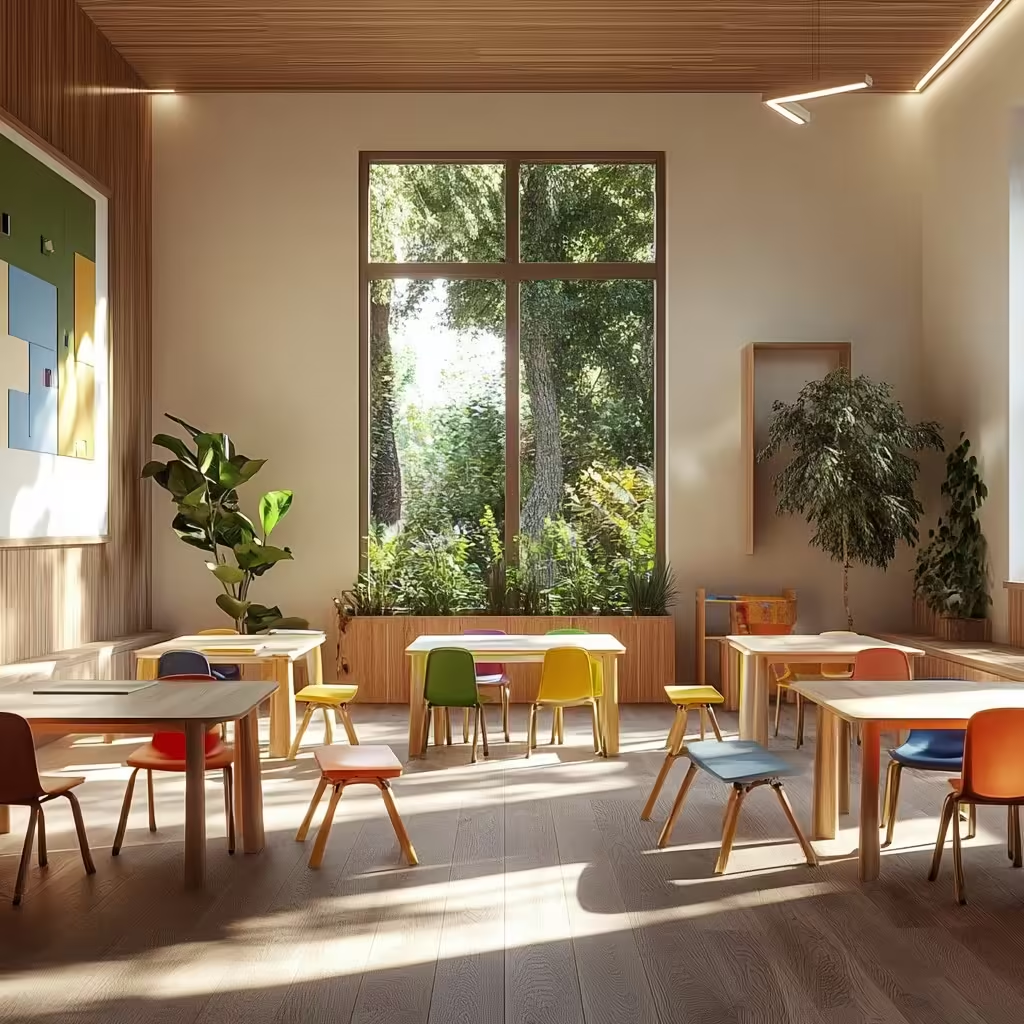Modern high-end education facilities are increasingly transforming traditional classrooms into VOC-free, acoustically pleasant, and relaxing spaces to enhance the learning experience for students. This trend is driven by a growing understanding of how the physical environment impacts cognitive function and overall well-being.
Environmental Factors
These redesigned spaces prioritise air quality by eliminating volatile organic compounds (VOCs) commonly found in paints, carpets, and furniture. VOC-free materials help create a healthier indoor environment, reducing potential health risks and improving cognitive performance.
Acoustic Design
The use of sound absorbing renders minimize disruptive noise and create an optimal auditory environment. This includes:
– Sound-absorbing materials on walls and ceilings such as Diasen Diathonite
– Strategic placement of furniture and partitions often made from laminated wooden panels
– Installation of a high-quality audio-visual system and interactive whiteboards
Flexible and Comfortable Spaces
Modern classroom designs often incorporate:
– Moveable hexagonal furniture for easy reconfiguration into groups or U-shape
– Varied seating options to accommodate different learning styles
– Natural lighting and biophilic elements to connect with nature
Benefits for Learning
These thoughtfully designed spaces aim to:
– Reduce stress and anxiety
– Improve focus and concentration
– Encourage collaboration and creativity
– Enhance overall well-being and academic performance

